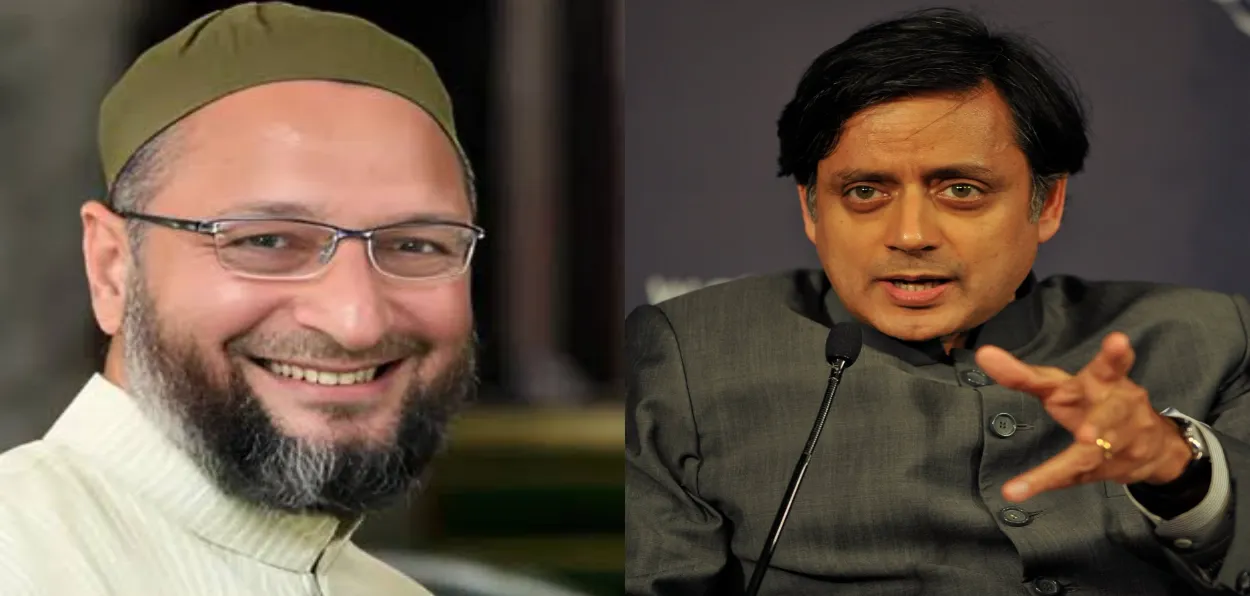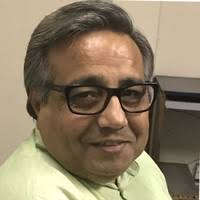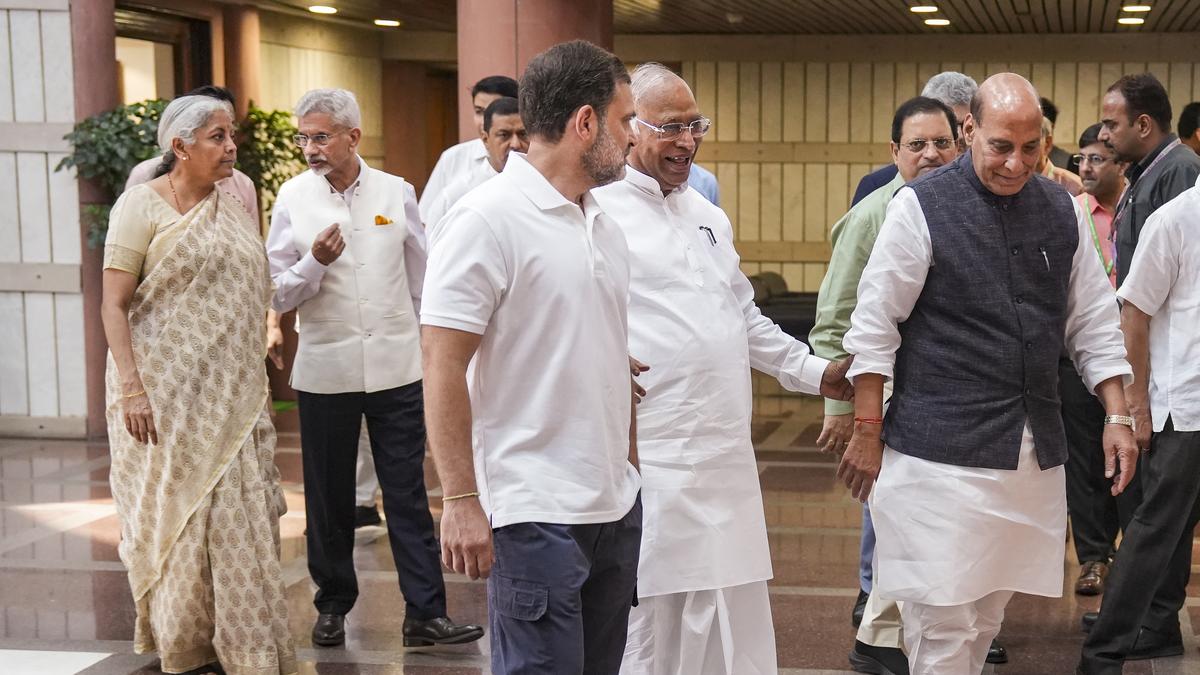
 Shekhar Iyer
Shekhar Iyer
Operation Sindoor was India’s direct military response to the April 22 terror strike at Pahalgam in Kashmir, in which 26 civilians were massacred in the worst attack on ordinary people since the 26/11 Mumbai strikes.
That incident saw the opposition parties rally behind the government to take punitive action to check cross-border terrorism perpetrated by Pakistan.
In a rare show of unity, political leaders authorised Prime Minister Narendra Modi to do what is necessary to convey to Pakistan that "enough is enough."
So when India launched Operation Sindoor in the early hours of May 7, by bombing nine terror camps in Pakistan and Pakistan-occupied Kashmir (PoK), there was widespread support among the Opposition parties.
As Pakistan hit civilian and military targets in India, the Modi government went for pre-dawn strikes, which killed at least 100 terrorists.
Soon, a series of attacks and counter-attacks across the western border saw the firing of missiles, armed drones, and fierce artillery and rocket duels. Ultimately, the Indian air force struck targets at 13 Pakistani air bases and military installations, forcing Pakistan to seek a cease-fire with India on May 10.
Overwhelmed by the support from many Opposition leaders, including those who had previously been staunchly opposed to the Modi government, the Prime Minister believed this was the best time for a global outreach.
All parliamentarians could go around the globe to convey the message of unity among Indians in dealing with the scourge of terrorism, and inform their counterparts why India views all acts of terrorism as acts of war and can no longer accept the role of Pakistan in this regard and is willing to do whatever it takes to prevent a repeat of the Pahalgam carnage.
Many people believed that India's defence and foreign policies had always been subject to a consensus until the Congress-led alliance lost power and space to the Modi-led BJP government after 2014.
 Leaders coming out of the meeting of All political parties on Operation Sindoor
Leaders coming out of the meeting of All political parties on Operation Sindoor
For electoral reasons, the opposition did not want to be seen as supporting Modi's foreign policy initiatives or posturing towards India's neighbours, as they figured the PM enjoys considerable credit and misses no opportunity to berate them.
Certainly, India needs an internal political consensus on how to deal with Pakistan, on issues like Kashmir, even if the government's decision to repeal Article 370 did not get bipartisan support in Parliament.
That is why the Modi government’s decision to include Opposition leaders in seven delegations that will travel to world capitals to reinforce Delhi’s post-Pahalgam diplomatic outreach is seen as a good move.
It also broadly reflects the country's mood.
Similarly, Modi's decision to include, as head of one of the delegations, Congress leader Shashi Tharoor, is a brilliant idea. As a former diplomat, scholar, writer, and chairperson of the Parliamentary Standing Committee on External Affairs, Tharoor has effectively articulated India's position and resolve.
However, Tharoor’s party —the Congress—is upset that Modi has given him prominence as it was trying to sideline or even dump him. Rahul Gandhi has a serious chemistry issue with him. By declaring its list of four leaders and excluding Tharoor from it, Congress has not demonstrated maturity in addressing the situation.
Additionally, the Congress appears isolated within the Opposition alliance. The DMK, NCP, and AIMIM leader Assauddin Owaisi have readily accepted the government’s invitation to participate in these delegations. Owaisi, as well as Jammu and Kashmir Chief Minister Omar Abdullah, have shown that they can become exemplary in rising to the occasion by vocally condemning Pakistan for its role in terrorism and rallying people to unite behind the government. However, the Congress, which had promised unconditional support to the government, is now keen to target External Affairs Minister S. Jaishankar.
Of course, pro-Rahul Gandhi elements within the party argue that there is an established convention regarding the composition of an all-party delegation, which stipulates that whenever a government decides to send delegations at the international level, all parties are informed to suggest their representatives. So, how can a government determine the name of a representative of an opposition party? It is neither its right nor prerogative. However, it must be remembered that this occasion is about taking the message of India on the issue of Pakistan's role in terrorism and Operation Sindoor, and to counter a false narrative that India has lesser support on this matter. Therefore, the government exercised its prerogative in choosing the team leaders and their members.
 Heads of delegations which are going to visit different countries
Heads of delegations which are going to visit different countries
In 1994, then-Prime Minister P. V. Narasimha Rao dispatched a bipartisan team, including Atal Bihari Vajpayee and Farooq Abdullah, to Geneva to thwart a Pakistan-backed resolution on Kashmir at the UN Human Rights Commission.
Along with Vajpayee, the Prime Minister had then sent former Jammu and Kashmir Chief Minister Farooq Abdullah and Salman Khurshid to Geneva to counter a resolution brought by Pakistan accusing India of human rights violations in Jammu and Kashmir.
The mission succeeded in exposing Pakistan’s duplicity. Following the 26/11 Mumbai attacks in 2008, Prime Minister Manmohan Singh launched a similar diplomatic effort. Multi-party delegations delivered strong dossiers on Pakistan’s involvement, leading to global condemnation and Pakistan’s subsequent inclusion in the Financial Action Task Force’s ‘Grey List’.
This time, India’s diplomatic engagements, particularly the dialogues with the UN Office of Counter-Terrorism, is to seek the designation of The Resistance Front (TRF) as a UN-listed terror group. It is also linked to intense briefings for the 1267 Sanctions Committee, linking TRF to Lashkar-e-Taiba, whose terror camps were targeted during Operation Sindoor.
Of course, Pakistan, too, is resorting to a diplomatic overture. Former Foreign Minister Bilawal Bhutto claimed he was asked by his Prime Minister Shehbaz Sharif to lead a “peace delegation" to different countries.
ALSO READ: How an American student delayed Pakistan turning a nuclear power
Pakistan feels the intense heat of India's strategy, which is likely to result in severe scrutiny of its role in terrorism. So, India’s bipartisan diplomatic initiative is a reflection of its collective national will against mindless terrorism and terrorists that Pakistan has nursed and harboured as a state policy.
